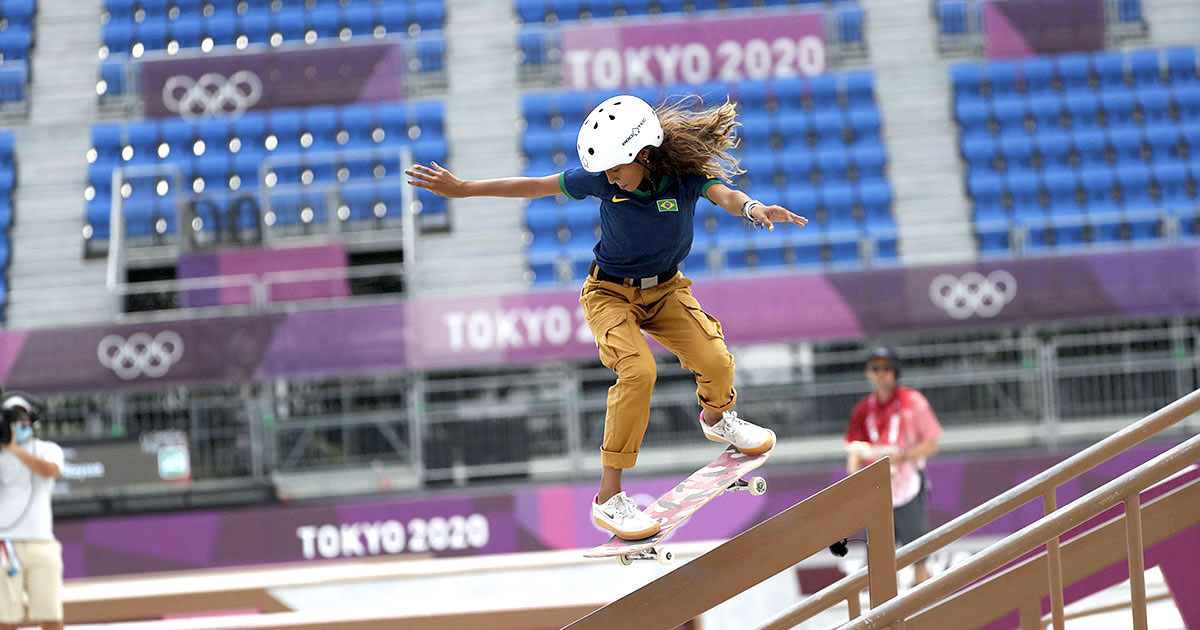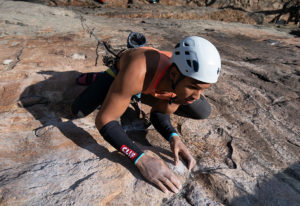New Olympic Sports Offer Golden Opportunity for Greater Diversity

The Olympic Games need innovation, and it couldn’t be more evident than with sport climbing. Despite 40 percent of the U.S. population identifying as a minority, that number falls to just 5 percent in sport climbing, which made its debut as an Olympic sport this year.
Twelve-time climbing national champion and 2024 Olympic hopeful Kai Lightner ’22 makes up that latter data point, and through his business, Climbing for Change, he is working to bring greater diversity to his sport, and awareness to other up-and-coming ones, too.
“The Olympics has been regularly criticized for being behind the times in social movements, in terms of treating athletes in sports,” Lightner says. “If they want to continue to be the standard of athletic excellence, they don’t have a choice but to innovate and continue to improve.”
The Benefits of Diversity in the Olympics
More than 13 million people in the United States tuned in during prime time of the first full week of the Tokyo Olympics, inspiring Americans from so many backgrounds.
“Historically, climbing has had minimal access for people from inner-city communities,” Lightner said. “This is a massive opportunity.”
Encouragingly, almost 49 percent of the participants in Tokyo’s Olympic Games were women, according to the International Olympic Committee. Part of that figure is due to the addition of this year’s four new sports: climbing, skateboarding, surfing, and karate, in which participation is open to both male and female athletes, says Babson College Associate Professor Anjali Bal.

Kai Lightner ’22 climbs up a rock face.
“Sports with higher diversity and competition, draw in better athletes, which means that the overall success of that sport increases,” Bal said. “Representation matters. The ability to see somebody one can relate to and identify with will increase the likelihood of interest in a sport.”
A chance to even get in the door, too, also is paramount.
“The more we can increase access, viewership and visibility to sports and teams,” Bal said, “the more likely you are to have socioeconomic diversity, gender diversity, ethnic diversity, and racial diversity.”
“The Olympics means more funding, more attention, more building of facilities that are accessible to new generations of kids that are diverse,” Lightner added.
Posted in Community, Entrepreneurial Leadership




